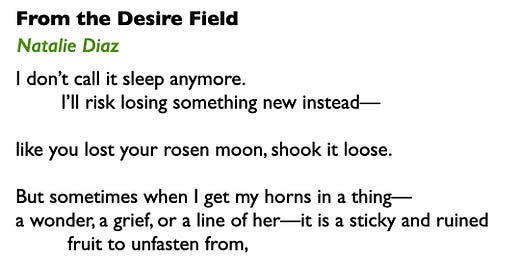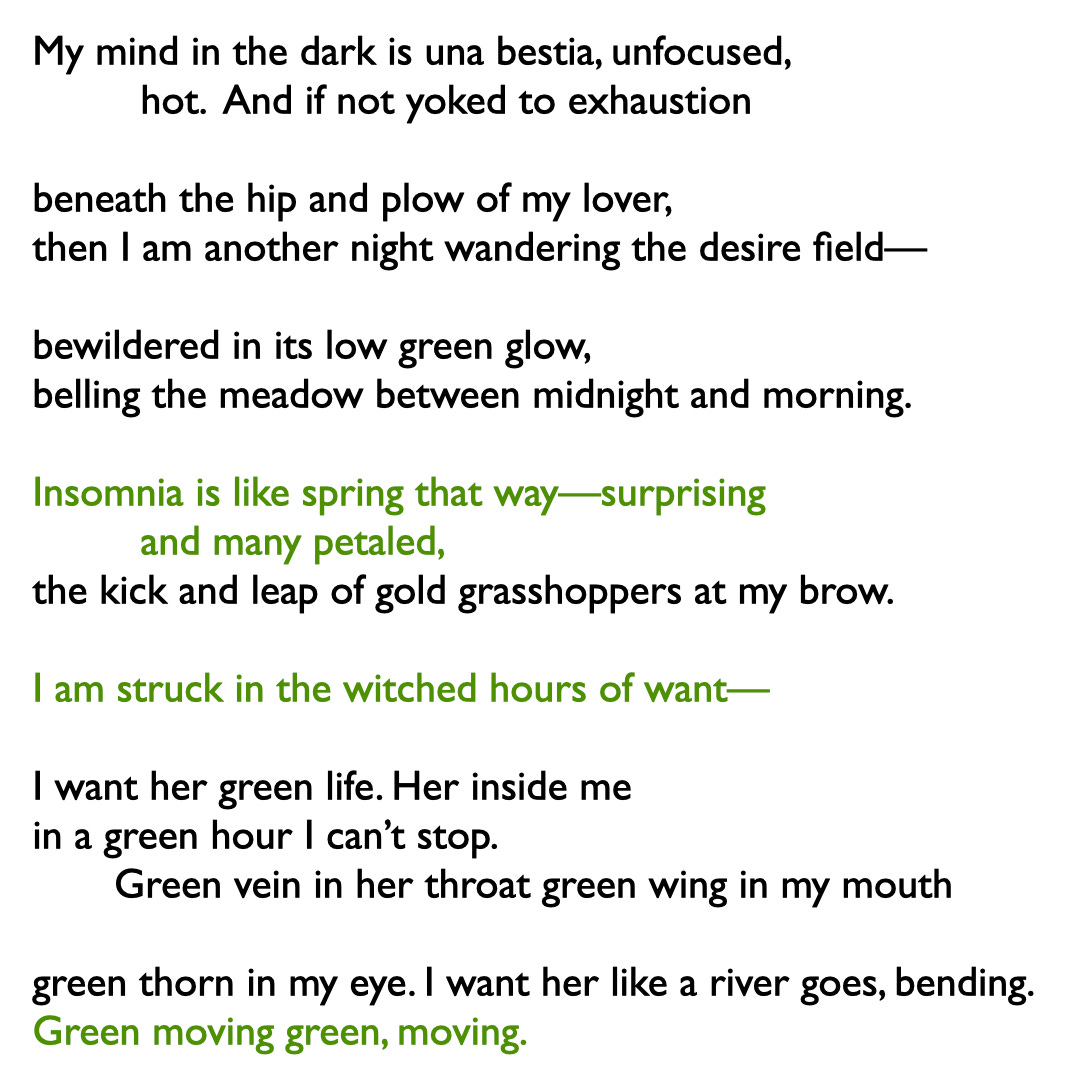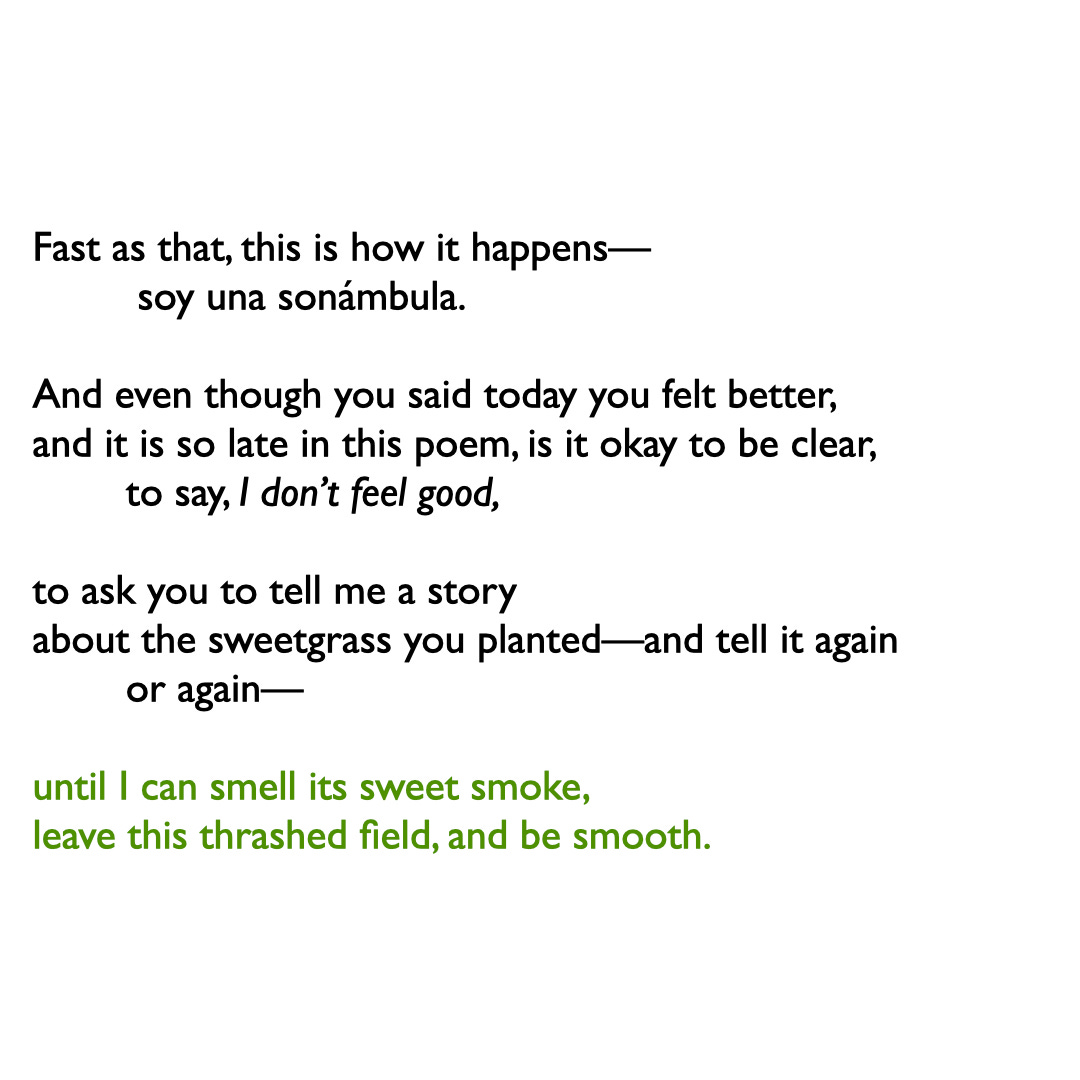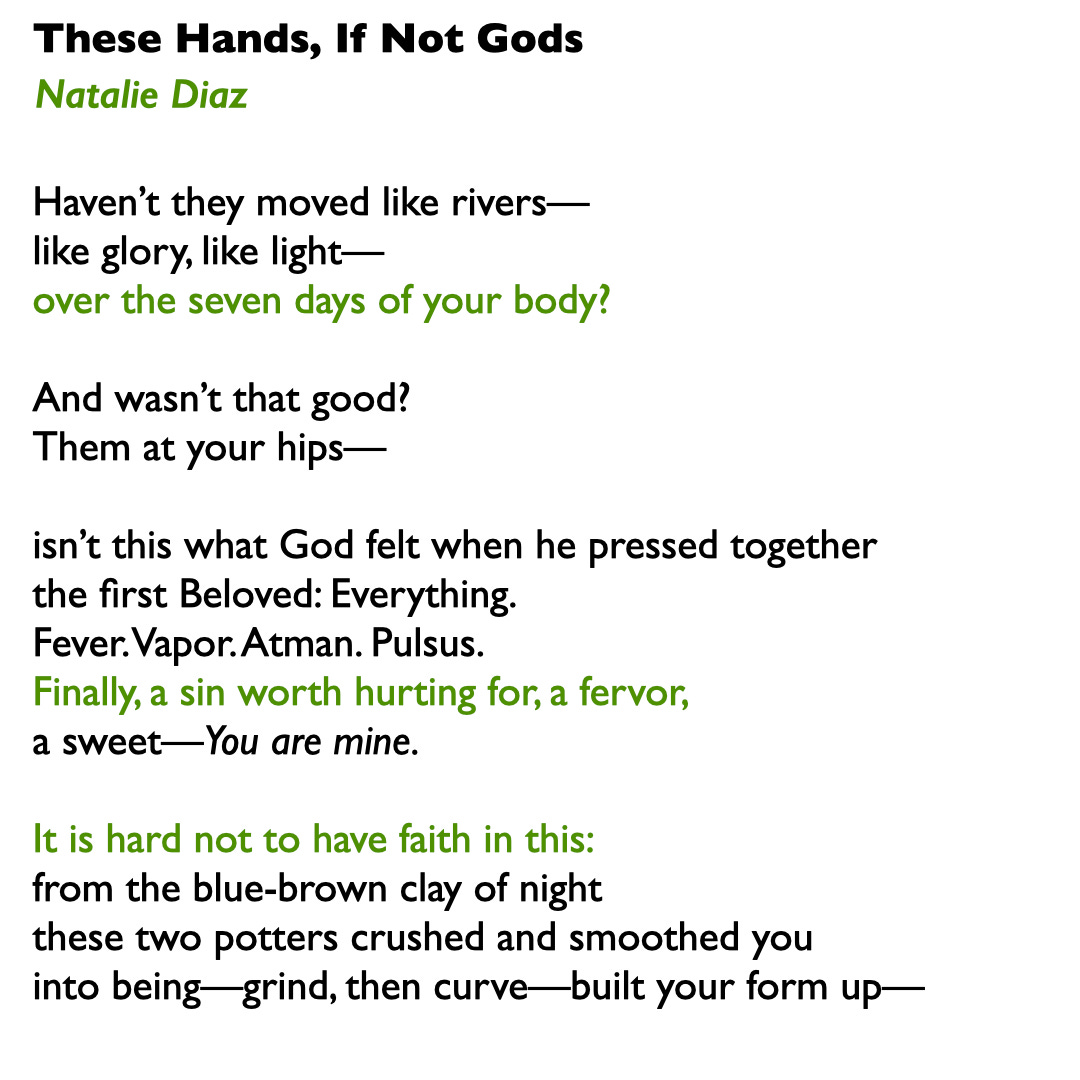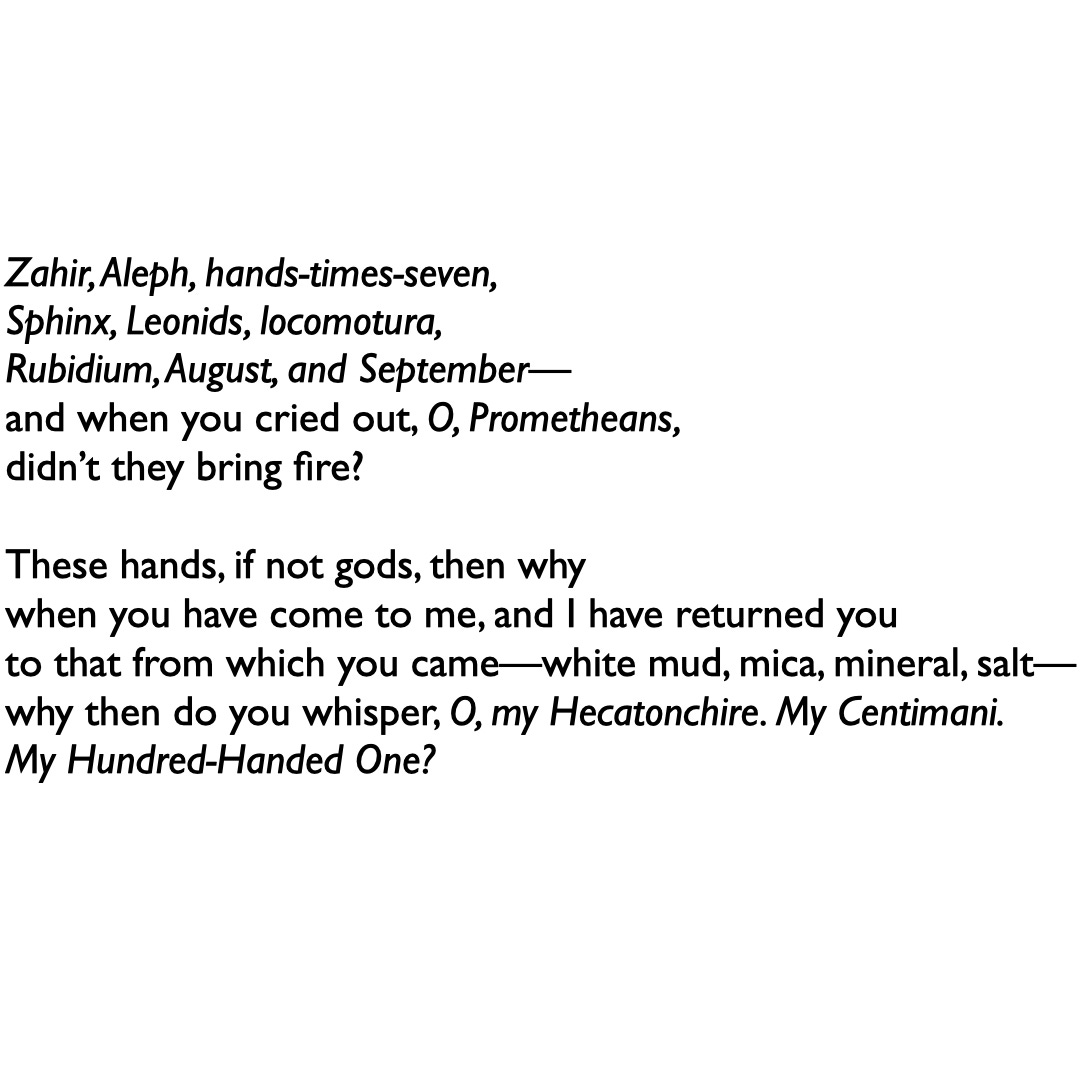Desire is broken. Because the world is. That is what makes it glow…
Green, how I desire you, green.
Green wind. Green branches.
The ship upon the sea
and the horse in the mountains.
With the shade wrapped about her waist
she dreams on her balcony,
green flesh, a green coat,
with eyes of cold silver.
Green, how I desire you, green…
…The fig tree rubs its wind
with the sandpaper of its branches,
and the forest, cunning cat,
bristles its brittle fibers.
But who will come? And from where?
She is still on her balcony
green flesh, her hair green,
dreaming in the bitter sea.From Lorca’s ‘Romance Sonámbulo’ (Sleepwalking Ballad)
Verde que te quiero verde
Green, how I desire you, green.
Between word and time, a lover climbs. Where home is not home, and sleep is not sleep. Where the thrum of fingers is a dog that howls without knowing why, cusping the landscape in its slow hurl. Insomnia is like spring that way - surprising and many petalled. To know this feeling, to swirl into shimmer, to plunge wet hands into the sand and uncover a stone that lisps jade moons. This is the language of want. the hungry throb. the ancient uncertainty of unfocused, hot; harvesting eyes that speak with the light of wet skin, on skin, the half-light of palm craving hip. Desire is the sinew, the green glow, the moving stillness of language, that slips under the skin as a jaguar moves, in the dark/liquid blading of shoulder.
language that slips…
atlas of bone, fields of muscle,
one breast a fig tree, the other a nightingale,
both morning and evening.
language that makes and unmakes, builds, bleeds without fuss, cold hearth. that rises in the clasp of legs, and sets in the dark anxieties of underground cave. Both naked and clothed in skin, this language is not love, simply, it is the memory of river and field planted in the body - it is the body returning to itself, damp earth. when the body is all eyes, all tongue, and the world transmutes into moan, the longing that seeks both shelter and stormy sky is Finally, a sin worth hurting for, a fervor,/a sweet—You are mine. What secret passes between two strings of the same instrument? And who are we - readers - breathers - in this vicarious limbing into meaning?
But vicarious is droll.
When the night slips between the dew and the leaf, does it ask?
That an intimacy, a field of it, of any worry ready to flower in my chest, could unspool like a gathering coldness, a nip whose sweet pain is everywhere, tingling bittersweet. Is this desire? or the desire of it? Is it complete, this coming/ into feeling - a desire for completion? Let thought seam between space, let dream unfurl into flesh, let image become longing, O the words, how they sluice breath into startle, world into meaning. How they pulse with the music of origin, the first light of eyes opening to riverine, of creation and apocalypse, even a god wouldn’t know, because this moment is immortal, in the poet’s hands, these hands, if not gods.
From her own words (an interview) - more poet, than poetry, :
“I am Native, so I am both—truth/fiction—and also bleeding over or overflowing each. Truth is always a placeholder for something. For how we feel, or how we want to feel, how we wished we didn’t feel. Things we wish we’d done, or hadn’t done, hadn’t enjoyed doing. The way we handle or mishandle our wounds… You can’t trust truth. But then, even the word trust. . . what is that a placeholder for?…”
“Free expression is its own threat. It was never intended to include most of us. And it certainly wasn’t meant to include merciless Indian savages. It isn’t surprising that most of us don’t have it, or it is being taken away, or becoming narrow. It is finally coming to fruition, meaning this was always the plan for free expression…”
“We are stories. Even our names are stories.”
“Every empire is a myth. It is a story about a beginning that is pretending to be itself, but is really a terrible something else. What is patriotism, if not a celebration of forgetting by committing to beginning again and again? Nostalgia is dangerous because it has to keep happening in order to exist—what we pine for, what we ache to return to, is often what we are replicating or enacting now in such violent ways that what we look back toward seems beautiful, and it makes us want to conquer it, build it, and destroy it again.”
If the poetry, and the commentary, resonate with you, do consider ‘buying me a coffee’. (Matlab, if you can’t, that’s also fine, obviously. This is a free newsletter)
Note: Those, not in India, who’d like to support the work I do at Poetly, do write to me - poetly@pm.me. (Paypal seems to have left the building, still figuring it out)
You can write to me, waise bhi, if you feel like it :)
Thanks for reading Poetly! Do subscribe if you are not reading this in your inbox. Cheers!

